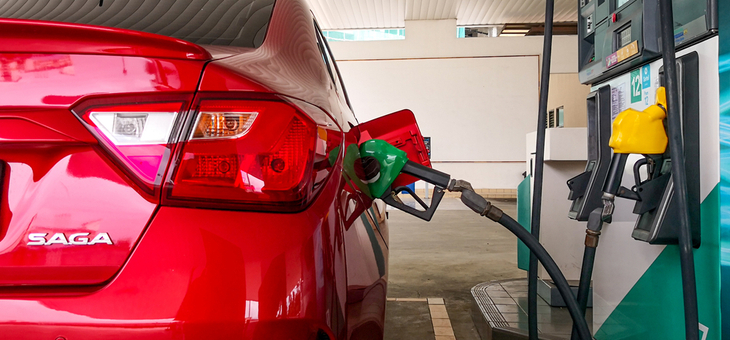Measures taken to safeguard Australia’s fuel security could backfire, increasing petrol prices, says Australian Competition and Consumer Commission (ACCC) chair Rod Simms.
As part of proposals introduced in last October’s Federal Budget, the government will pay oil companies for every litre of transport fuel they produce locally.
Mr Sims told The New Daily he is worried about the inflationary impact of the policy.
“The concern we have is that if you’re going to put a levy on fuel generally and pass that to refiners, well then of course you are going to … increase the price of petrol for consumers,” he said.
“Those who are purely importers might be worse off compared to those who have refineries, and of course those who are purely importers are usually the low prices player,” he said.
“You don’t want to disadvantage them. It could mean they’re not as aggressive in price as they normally are.”
In February, the Financial Times reported that Australia faced a “growing fuel security problem” after ExxonMobil decided to close its Altona (Victoria) refinery, leaving the country with only two domestic fuel plants. Exxon said the refinery was no longer “economically viable”. Four months earlier, BP announced it was closing its Kwinana facility in Western Australia.
The October Federal Budget included a “suite of reforms and investments” aimed at addressing Australia’s fuel security.
The goal was to increase domestic storage and to “hold a sovereign refining capability that meets our needs during an emergency, as well as into the future”.
“We will secure our local industry’s capabilities, while keeping fuel prices in Australia among the lowest in the OECD,” the government announced.
Schemes mooted included a $200 million investment in new diesel storage; creating a minimum stockholding obligation for key transport fuels; a long-term income stream to refineries; and the modernisation of liquid fuel legislation.
Read more: What to do if you run out of fuel
Associate Professor Alexey Muraviev, a national security expert at Curtin University, told The New Daily Australia could sustain normal operations for “about two weeks” if it was cut off from the rest of the world.
“This is a question of our security and survival as a sovereign nation – I haven’t seen tanks running on electric power.”
He believes subsidies and storage requirements would add “weeks rather than months” to emergency reserves.
Graeme Bethune, chief executive of research group EnergyQuest, said the support being offered the pandemic-hit industry was “too little too late”.
When the measures were announced, the prime minister said fuel security underpinned the entire economy.
Read more: Making the most of low fuel prices
Refiner Viva, which operates a facility at Geelong in Victoria, expects refining to remain challenging during 2021, “with the longer-term outlook dependent on the outcome of the fuel security package”.
“We plan to resolve the refinery’s business for the long term this year,” Viva chief executive Scott Wyatt told argusmedia.com.
Viva plans to expand into natural gas, hydrogen, and renewable electricity to ensure its viability.
“We are working to return the refining business to positive earnings in the short term and aim to achieve minimum sustainable returns over the long term,” Mr Wyatt said.
Ampol is reviewing the future of its refinery in Lytton, Brisbane, which employs 300 permanent staff. The fuel refiner posted a full-year loss of $485 million, mainly due to coronavirus restrictions limiting travel.
Read more: All about E10 fuel
BP said its Kwinana refinery was no longer economically feasible due to the regional oversupply and “continuous lower refining margins”.
After exploring various options for the refinery’s future, it decided to convert the 65-year-old facility to an import terminal. BP was offered government incentives to keep the refinery operational.
Writing for The Conversation, Professor Richard Holden said the closure of the Yallourn coal-fired power plant proves that the price of renewable energy is falling so rapidly it will eventually replace fossil fuels.
Energy Australia announced last week that it would close the power station in Victoria’s Latrobe Valley in 2028 – four years earlier than expected – because of the “low price and high uptake of renewable energy”.
Prof. Holden says Australia pays $12 billion in various “implicit subsidies” for fossil fuels and the transition to green energy will affect all sectors of the economy.
“The Yallourn closure should be a wake-up call to both sides of politics that a transition to green energy run by government fiat is going to be a very messy affair at best, and a complete disaster at worst.
“Our energy transition is in disarray. It will only get worse without a price on carbon and an end to subsidies for all forms of energy. Failure to do so will merely sow the seeds for more transition problems in the years to come.”
Are you convinced we have fuel security? What more should be done to ensure our fuel security?
Read more: Is premium fuel worth it?
If you enjoy our content, don’t keep it to yourself. Share our free eNews with your friends and encourage them to sign up.

